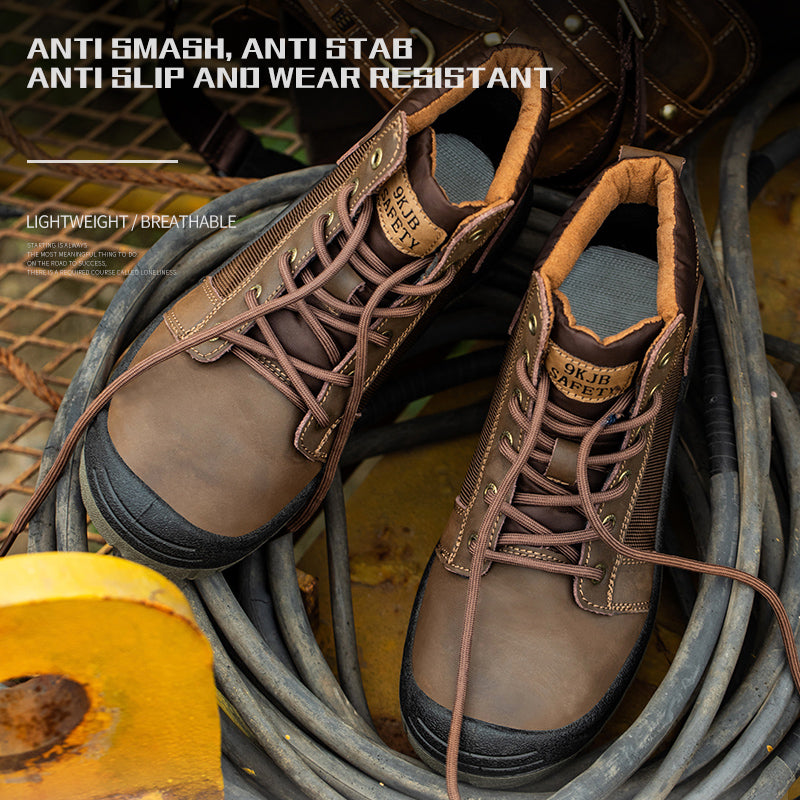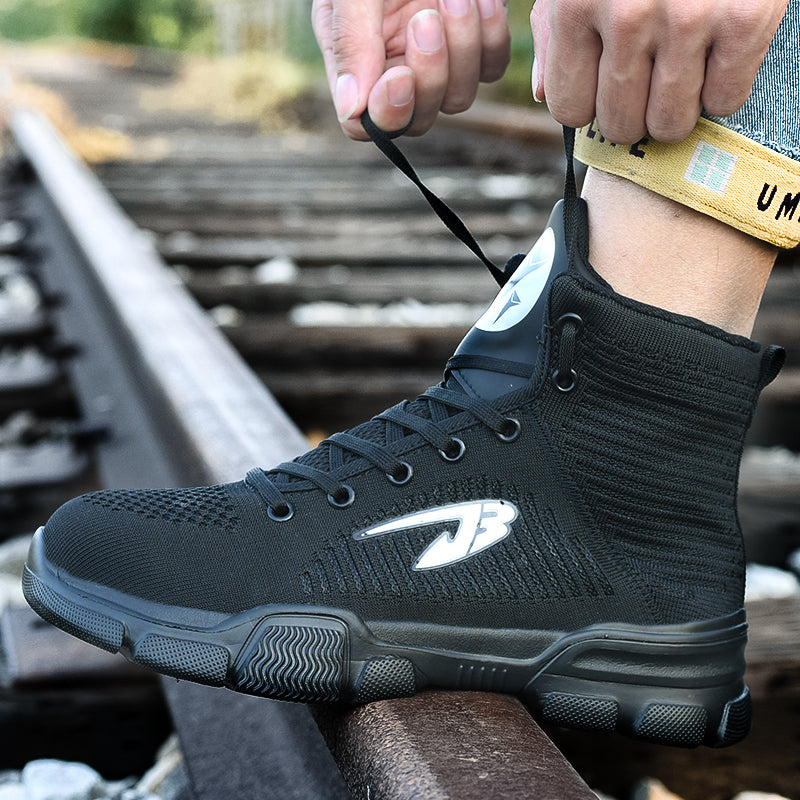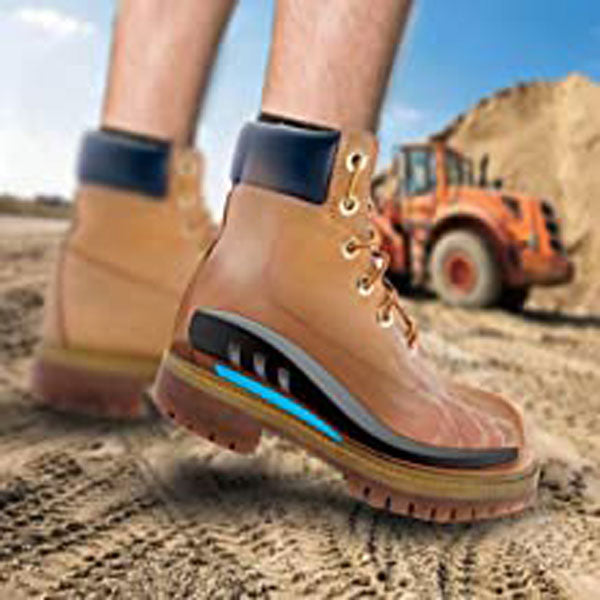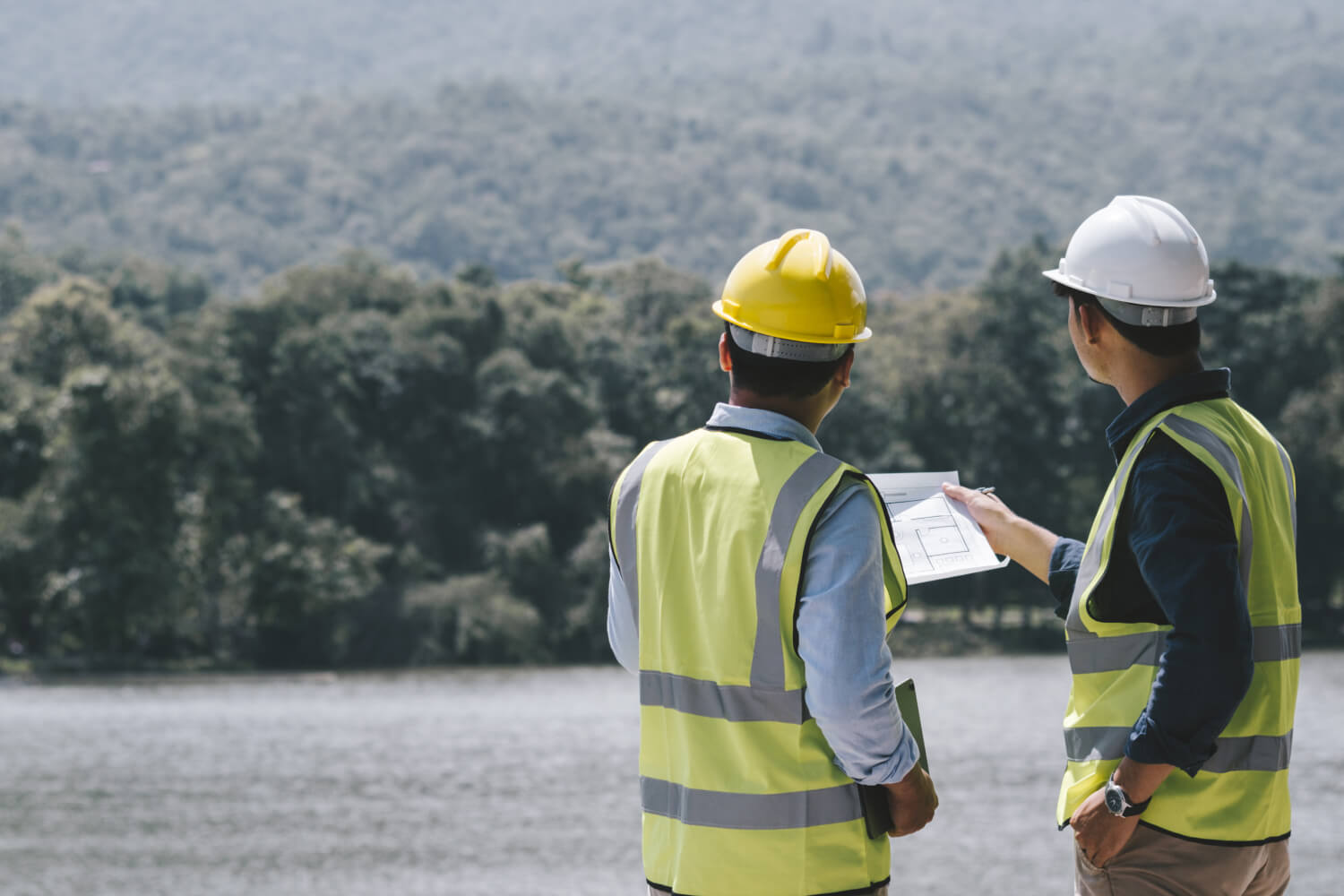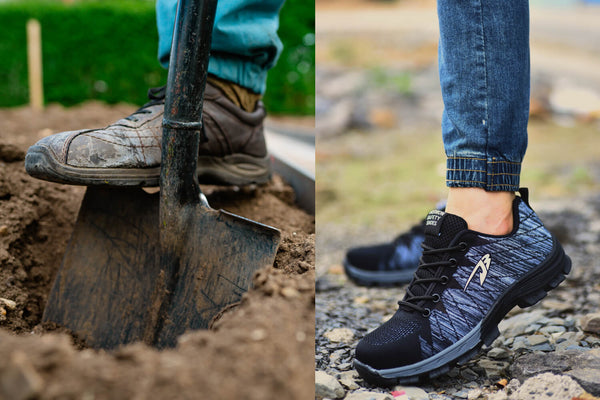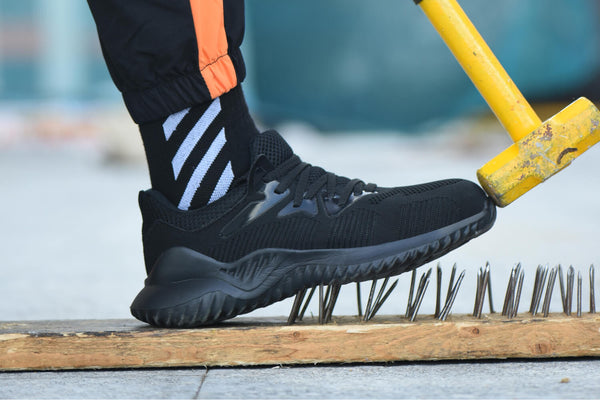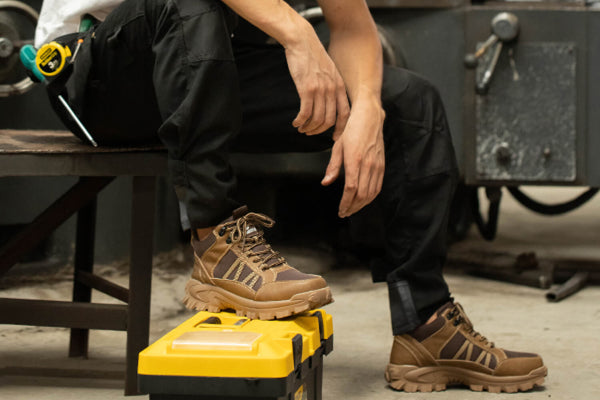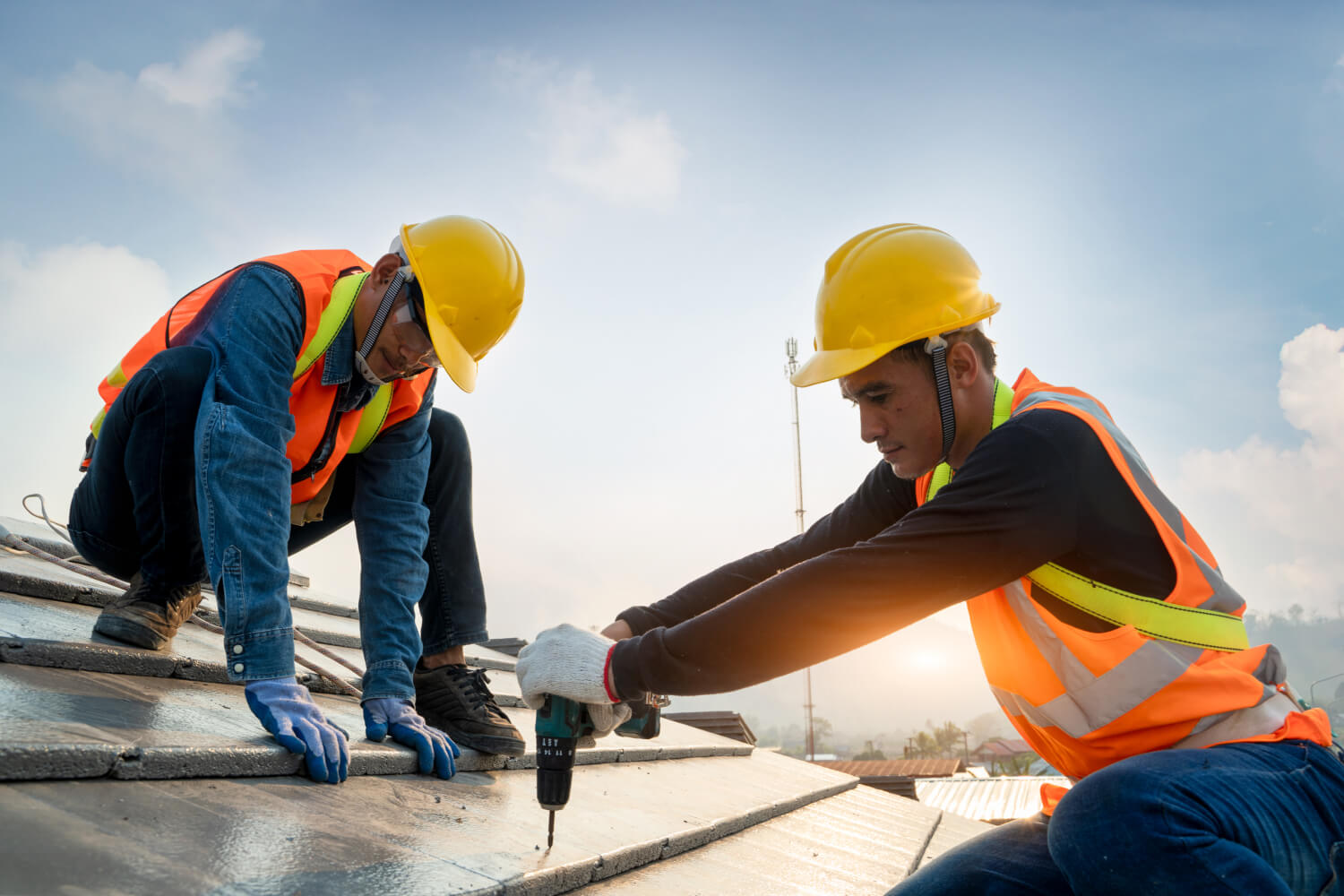The Unexpected Connection: Manual Labor and Mental Health
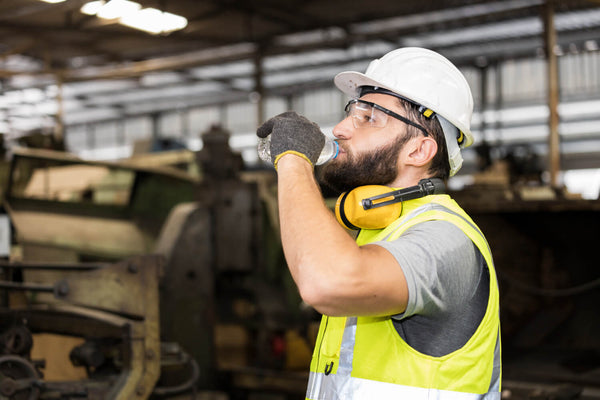
In today's fast-paced, digitally-driven world, we often overlook the importance and value of manual labor. The age-old professions requiring physical exertion and hands-on effort seem to be at odds with the modern idea of well-being and mental serenity. However, beneath this surface-level perception lies a profound and often underexplored relationship between manual labor and mental health.
Rediscovering the Power of Hands-On Work
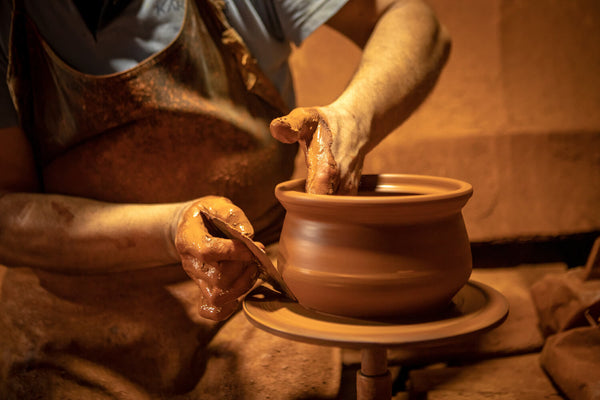
Throughout human history, our ancestors engaged in manual tasks as a matter of survival. Be it hunting, farming, building shelters, or crafting tools, hands-on work was an integral part of daily life.
In many ways, this connection to the Earth and the tangible results of labor provided a sense of purpose and fulfillment.
Today, as many professions move away from the tactile and physical, there's an emerging yearning to reconnect with this primal essence. Engaging in manual labor isn't just a means to an end—it's a holistic experience that binds the mind and body in a unique dance.
The Therapeutic Nature of Repetitive Tasks
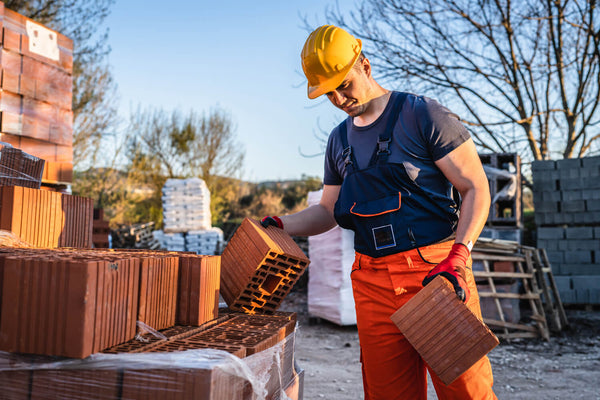
Repetitive tasks, often synonymous with manual labor, have a meditative quality to them. The act of repeating a specific task, like hammering a nail, planting seeds, or weaving, allows the mind to enter a state of flow.
This "flow state," as coined by psychologist Mihály Csíkszentmihályi, is where individuals feel completely absorbed in a task, leading to heightened focus and immersion in the activity.
This meditative repetition can be therapeutic. It offers an escape from the incessant chatter of the mind, reducing stress and anxiety. Instead of being overwhelmed by future concerns or past regrets, one becomes wholly engrossed in the present.
A Tangible Sense of Achievement
One of the stark contrasts between manual labor and many modern professions is the tangibility of results. In manual work, progress and outcomes are immediately visible. Build a wall, and you see it rise. Plant a garden, and you watch it bloom.
This direct feedback loop provides a visceral sense of accomplishment.
In contrast, many contemporary jobs lack this tangible feedback.
A digital marketer might not immediately see the fruits of their campaign, and an IT professional might spend days coding without a direct user experience. The delay in feedback can sometimes lead to feelings of disconnect or lack of fulfillment.
However, manual labor, with its clear end-results, can instill a profound sense of purpose and satisfaction, directly bolstering one's mental well-being.
Walking a Mile in Their Shoes: Fostering Empathy
Empathy, a powerful human ability to understand and share the feelings of another, is often cited as one of the essential qualities to cultivate for personal growth and social harmony. However, when discussing manual labor and its impact on mental health, fostering genuine empathy is more than just an emotional exercise; it becomes a bridge to understanding a world many may not experience firsthand.
Manual Laborers: The Silent Champions
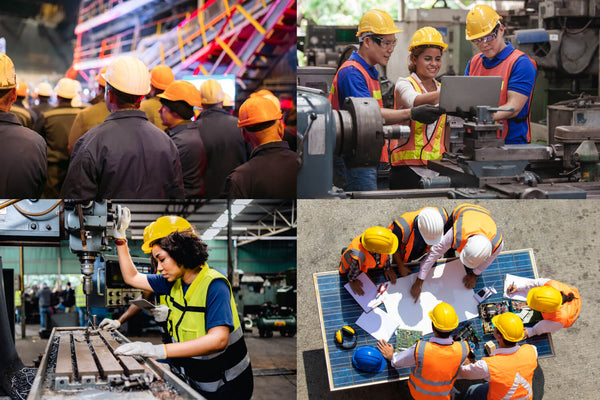
To genuinely appreciate and empathize with manual laborers, it's crucial to recognize them as the silent champions of our daily lives.
Every road we drive on, every building we enter, and every beautiful landscape we admire is often the result of hard, hands-on work. Yet, how often do we pause to think about the individuals behind these creations?
Understanding the day-to-day experiences, challenges, and triumphs of those in physically demanding professions allows us to see the world through their eyes, leading to a deeper appreciation and connection.
Beyond the Physical: The Emotional and Mental Strains
While the physical strains of manual labor are evident, the emotional and mental stresses might go unnoticed. The pressure to complete tasks within tight deadlines, the responsibility of ensuring safety in potentially hazardous conditions, and even the societal perception surrounding manual jobs can take a toll on one's mental health.
By walking a mile in their shoes, figuratively speaking, we can begin to grasp the depth and breadth of these challenges.
This insight goes a long way in fostering genuine empathy, which is rooted in understanding rather than mere sympathy.
The Transformative Power of Listening
One of the most potent tools in cultivating empathy is active listening. Taking the time to listen to the stories, experiences, and feelings of manual laborers can be transformative.
Whether it's understanding the pride a craftsman takes in his work or the fears a construction worker might have about job stability, listening offers a window into their world.
Engaging in conversations, asking questions, and genuinely paying attention not only broadens our perspective but also conveys a sense of value and respect to those sharing their stories.
A Two-Way Street: How Empathy Benefits Everyone
While it's evident that empathy can lead to better support and understanding for manual laborers, it's a two-way street.
By fostering empathy, we also stand to benefit immensely. By connecting with diverse experiences and perspectives, we enrich our understanding of the world, cultivate gratitude, and foster deeper human connections.
Indestructible Shoes: More than Just Footwear
In the bustling mosaic of modern life, shoes are often relegated to the realm of mere accessories—a reflection of fashion choices or, at most, a nod to the practicality of comfort.
However, when we dive into the world of manual labor, where every step can be a potential hazard or the difference between a productive day and a crippling one, the narrative around shoes takes on a deeper, more profound meaning.
Indestructible Shoes aren't just about protection; they're about empowerment, resilience, and recognizing the true value of those who wear them.
The Anatomy of Indestructible Shoes
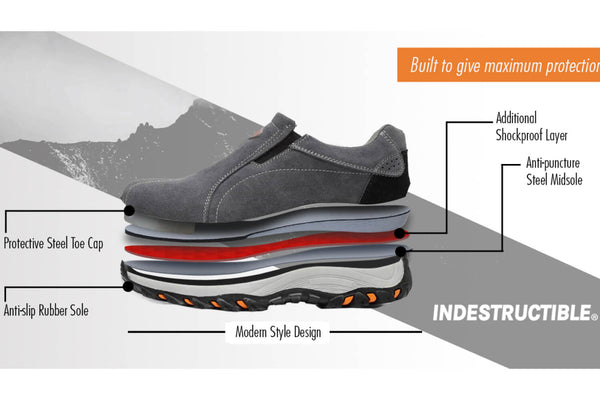
Understanding the essence of Indestructible Shoes begins by looking at their design and construction. More than just rugged aesthetics, these shoes are a marvel of engineering.
Made with materials that can withstand severe impacts, resist punctures, and provide cushioned support, they are built to weather the challenges of demanding environments.
However, the true magic lies in the balance—combining the toughness required for protection with the comfort needed for prolonged wear. It's not just about surviving the workday but thriving through it.
A Silent Guardian: The Protective Role
Safety is paramount in manual professions. From construction sites filled with sharp objects and heavy machinery to warehouses where dropping hazards are omnipresent, the risks are numerous. Indestructible Shoes act as a first line of defense against these threats.
Reinforced toe caps can prevent crushing injuries, while puncture-resistant soles can safeguard against nails or other sharp objects. By acting as a barrier against common workplace hazards, these shoes do more than protect feet—they instill confidence, allowing wearers to focus on their tasks without the constant fear of potential injury.
Comfort: The Unsung Hero in Mental Well-being
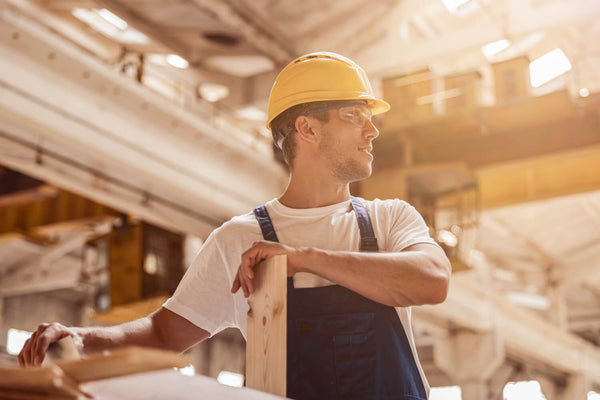
Physical comfort plays a significant, albeit often overlooked, role in mental well-being. Anyone who's spent hours in uncomfortable footwear can attest to the distracting, mood-dampening impact it can have.
For manual laborers, this is amplified by the rigorous demands of their work.
Indestructible Shoes, with their ergonomic design, breathable materials, and cushioning, provide the comfort needed for long hours. This comfort translates to reduced fatigue, better focus, and an overall enhanced mood—crucial elements that feed into one's mental health.
A Testament to Value and Respect
Beyond the tangible benefits, choosing to invest in Indestructible Shoes sends a powerful message. It signifies a recognition of the challenges faced by manual laborers and an intent to provide them with the best tools possible.
In essence, it's a gesture of value and respect, acknowledging that their safety and comfort are of paramount importance.
Taking Steps Towards a Healthier Future
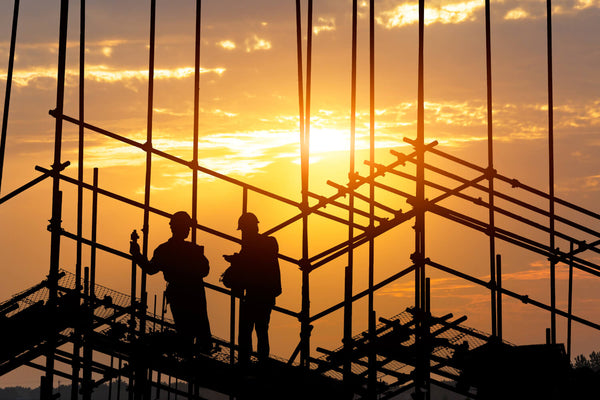
In an era where technological advances and rapid changes define our daily lives, there's a growing understanding and appreciation for holistic health.
Beyond just physical well-being, the emphasis is shifting to a more comprehensive view that includes mental, emotional, and social health.
As we examine the roles of manual labor and the importance of supportive footwear like Indestructible Shoes, we're also recognizing a broader narrative—a call to integrate the lessons and principles of these domains into a more conscious, healthier future for all.
The Balance of Physical and Mental Health
While the virtues of physical health have been long celebrated—from the rush of endorphins post-exercise to the strength and stamina developed through manual work—it's equally vital to spotlight mental health. The two are intricately linked; the state of our body often influences the state of our mind and vice versa.
Embracing activities that challenge and nurture both aspects ensures a more robust, resilient individual. Manual labor, with its blend of physical exertion and the therapeutic qualities discussed earlier, offers an excellent blueprint for achieving this balance.
Mindful Consumerism: Choosing Products with Purpose
In today's consumer-driven society, the power of purchase decisions cannot be overstated. As individuals become more conscious of their choices, there's a move towards mindful consumerism—selecting products that not only serve a functional purpose but also align with one's values and larger societal goals.
Indestructible Shoes, for instance, aren't just about protection and comfort. By choosing such footwear, one is making a statement about the value of hard work, the importance of safety, and a commitment to holistic well-being. When multiplied across society, these choices can drive significant positive change.
Building Supportive Environments and Communities
A healthier future isn't just about individual actions; it's about collective endeavors. Creating environments and communities that support, understand, and uplift is crucial.
For manual laborers, this could mean safer workplaces, access to mental health resources, or even community gatherings to share experiences and challenges.
Furthermore, fostering empathy, as discussed earlier, is instrumental in these endeavors. When people feel understood and valued, it creates a ripple effect, leading to more supportive, compassionate communities.
Education and Awareness: The Pillars of Progress
To truly step into a healthier future, the role of education and awareness is paramount. This involves highlighting the mental health benefits of manual labor, promoting the importance of protective gear, and even debunking myths surrounding physically demanding professions.Through workshops, campaigns, and open dialogues, society can be equipped with the knowledge and understanding to make informed choices, extend support, and cultivate a more inclusive, health-conscious environment.

